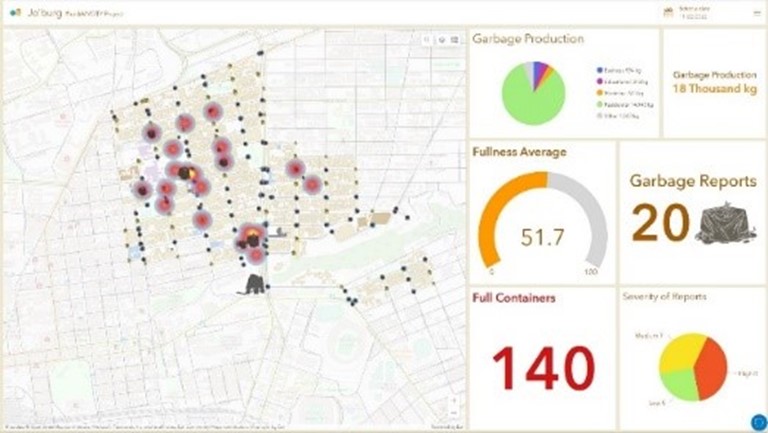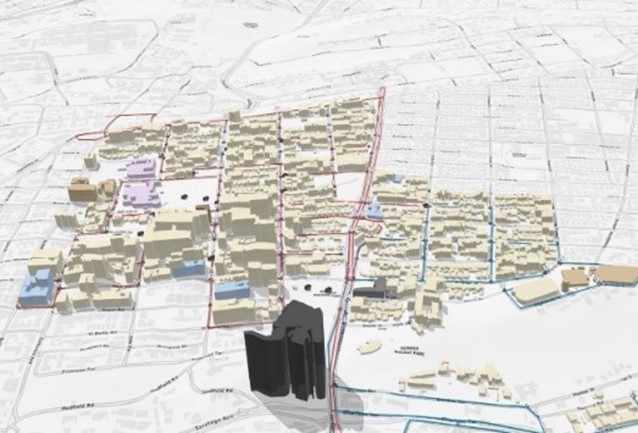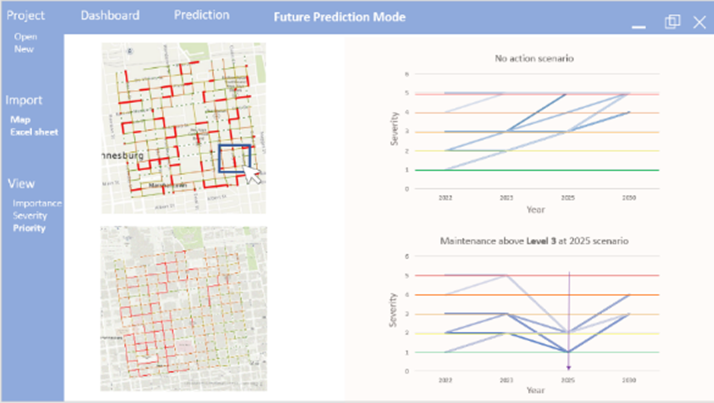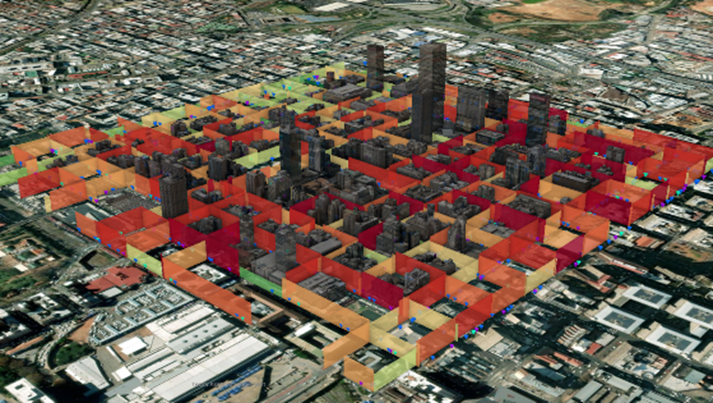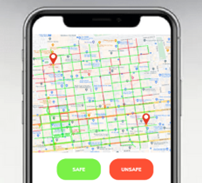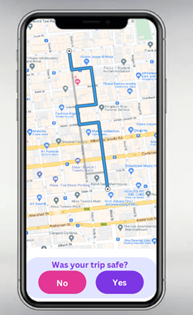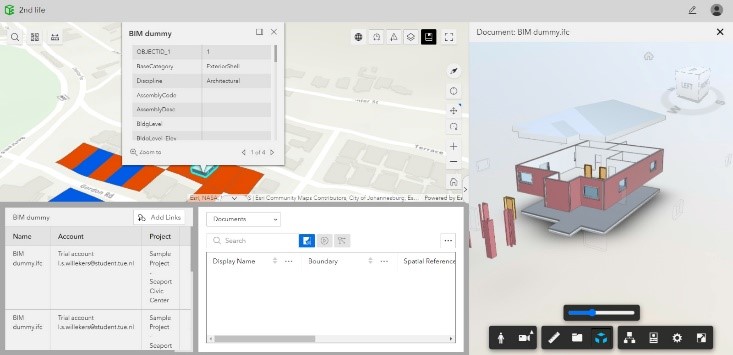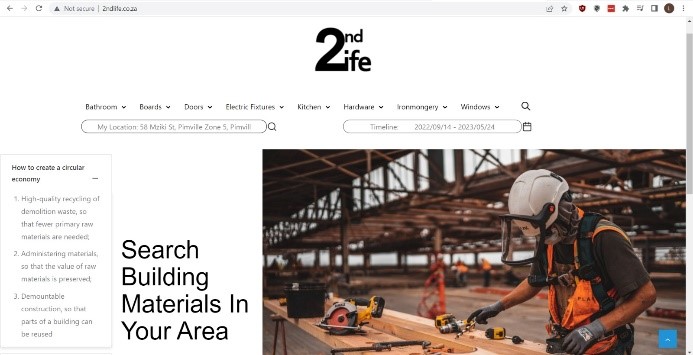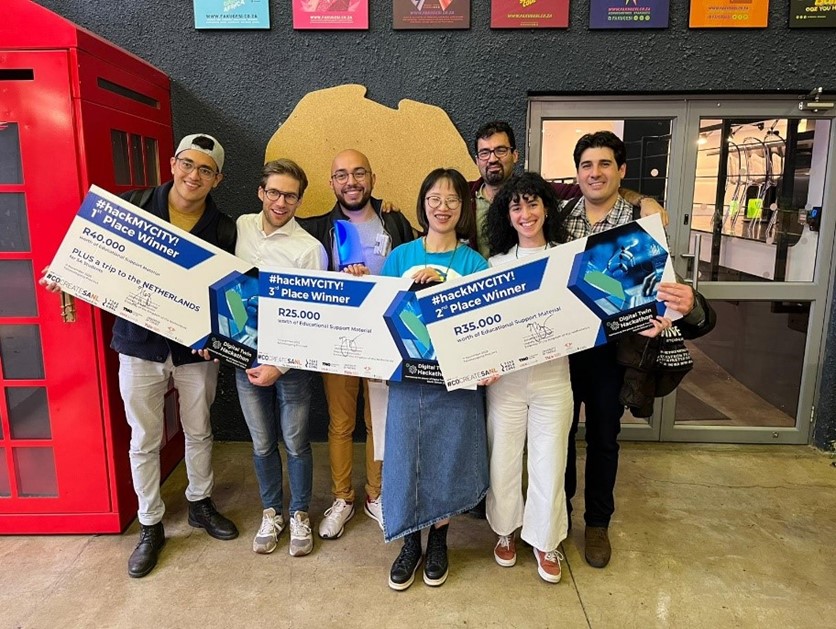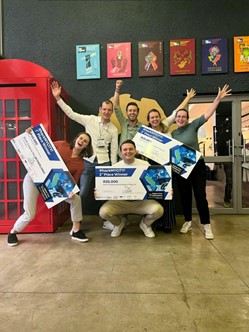University of Twente and Eindhoven University of Technology #hackMYCITY in Johannesburg
Five students from the University of Twente and five students from Eindhoven University of Technology achieved outstanding results at the digital twin hackathon in Johannesburg last month. The students of the Dutch universities created digital twins to tackle challenges related to waste management, road asset management, walking safety, and circularity of building materials and bring the 1st, 2nd, and 3rd price back home. The jury was impressed by the innovative solutions of the students and envisions the potential for future development of the results.
On November 7-11, the Embassy of the Kingdom of the Netherlands in South Africa and Wits University’s renowned digital incubator – Tshimologong Digital Innovation Precinct – co-organized a hackathon around the use of digital twins. The departments of Urban and Regional Planning and Geo Information (ITC) and Civil Engineering and Management (ET) from Twente and Construction Management and Engineering (CME) and Urban Systems and Real Estate (USRE) from Eindhoven sent ten MSc, EngD, and PhD students to represent the Dutch universities. Three academic staff members from Twente and two from Eindhoven joined the event to mentor all participants.
The #hackMYCITY experience
The hackathon started with a visit to the University of Johannesburg and the University of Pretoria to learn about digital twinning initiatives in South Africa and the cities’ challenges related to transportation, environment, asset management, and circularity. After some inspiring lectures on the second day, the Dutch students mixed with students from the University of Johannesburg and the University of Witwatersrand. The six international teams then applied their digital skills to tackle local challenges for the remainder of the week.
The Dutch Digital Twins
Wider impact
The interdisciplinary teams of Dutch and South African students generated many creative ideas that can be widely adopted. Despite the short amount of time, the students managed to combine their skills from various backgrounds in versatile teams. With the valuable guidance of both Dutch and South African mentors, the teams were able to present concrete and impactful digital twins. The students did not only impress their mentors but also exceeded the expectations of the organizers. Discussions for further collaborations and developments of the digital twins have already emerged.
The #hackMYCITY digital twin hackathon is another example of successful collaboration between two 4TU universities. Through collaboration, students from different 4TU universities contributed to solving real challenges using digital twins. Strengthening relationships will inevitably lead to innovations in digital twins in the future.
Acknowledgment
This hackathon would not be possible without the support of Tshimologong Digital Innovation Precinct, the Embassy of the Kingdom of the Netherlands in South Africa, and all involved universities. Finally, the success of the participants and the three prizes would not be possible without the insightful guidance and help of their mentors Mila Koeva, Faridaddin Vahdatikhaki, Léon Olde Scholtenhuis, Pieter Pauwels, and Alex Donkers.
